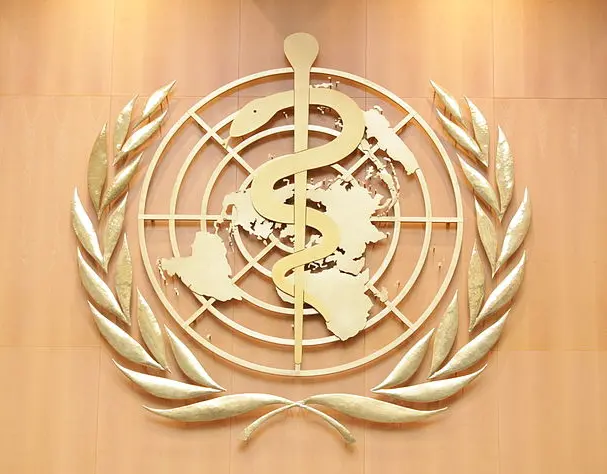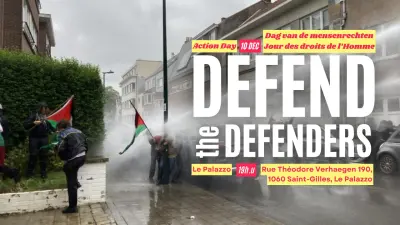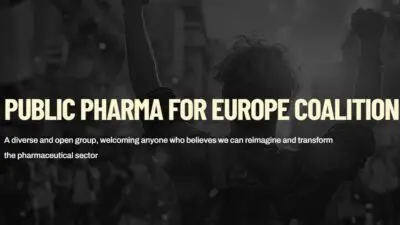Mixed outcomes at the ‘COVID-19 World Health Assembly’
The 73rd World Health Assembly saw the US continue its attack on China and the World Health Organization. The WHA recognized immunization as a global public health good but failed to do the same for vaccines.
The article below is part of the ‘WHO-Watch’ program, which is an effort of the People’s Health Movement (PHM), a global movement in which Viva Salud also operates. The program works towards democratizing global governance for health and involves young activists in following the governing body meetings of the World Health Organization – the Executive Board meeting in January and the World Health Assembly in May – every year.
The WHO’s role in containing COVID-19
The recently concluded World Health Assembly (WHA) was high on politics with country delegations presenting their political positions on issues as varied as the World Health Organization’s handling of COVID-19 and intellectual property to the economic sanctions imposed by the United States on Iran, Cuba and Venezuela. The Director General (DG) of the WHO, Dr. Tedros Adhanom Ghebreyesus, made a strong statement seeking support for the organization in the fight against COVID-19. The WHO received support from many quarters, ranging from many low and middle income countries to high income countries, such as Sweden and Germany.
The South African statement said, “We must take the opportunity to appreciate the guidance from the technical experts of the WHO.”
Sweden expressed its “strong support and appreciation for WHO’s crucial role and irreplaceable leadership in this pandemic. Now, maybe more than ever, is the time to strengthen our international cooperation and show global solidarity.”
German chancellor Angela Merkel said the WHO is the legitimate world organization in the area of health and added that there was a need to look into its financing to ensure it is sustainable.
The WHO’s role in containing COVID-19 has become a hot political issue over the past month and this played out during the two-day long virtual WHA. The agency has been under attack by the US for allegedly conniving with China in suppressing news about a possible spread of the coronavirus. The US had frozen its funding to the WHO in April and has been giving mixed signals about restoring it, partially or fully. On the first day of the WHA too, the US had strong words against the organization.
US secretary of health Alex M Azar said, “We must be frank about one of the primary reasons this outbreak spun out of control: There was a failure by this organization to obtain the information that the world needed, and that failure cost many lives.” He went on to add that, “WHO must change, and it must become far more transparent and far more accountable.”
In an obvious reference to China, the US statement added, “In an apparent attempt to conceal this outbreak, at least one member state made a mockery of their transparency obligations, with tremendous costs for the entire world.” China has repeatedly rejected these allegations.
The US also submitted a separate letter to the WHO DG outlining details of its allegations stating that the agency objected to a travel ban on China even when it was well established by February that the coronavirus had reached all parts of the globe. It also complained that the WHO delayed declaring it a pandemic.
Constructive criticism of the WHO is a healthy practice and its decisions must be reviewed to inform the future course of action. However, the role of the US has not been constructive. Delaying and suspending funding to the WHO when the US is the biggest funder will hamper creating a global governance mechanism to strike back at the virus.
Will the COVID-19 vaccine become a global public good?
Meanwhile, China made two major announcements. The country promised that any vaccine for COVID-19 developed in China will be made a global public good. In other words, it will follow the principle of affordability, accessibility and availability and China will not try to profit through it. It also announced a contribution of USD 2 billion towards containing COVID-19.
Representatives of many other countries spoke in favor of such a vaccine being treated as a public good. However, the resolution proposed by the European Union and 37 other countries, and adopted unanimously on May 19, falls short of this provision. The COVID-19 resolution considers the government’s function of immunization a public good, but not the vaccine.
In a Commentary on the draft Resolution, the Peoples’ Health Movement (PHM), appreciated the recognition of immunization as a global public health good (in OP6 of the resolution) but condemned the exclusion of vaccines from this status, effectively affirming market-based production and distribution even in the face of prohibitive pricing and failure to invest in meeting public health needs as part of this approach.
For its part, the US dissociated from some key parts of the resolution, namely sexual and reproductive health and rights (SRHR) and TRIPS flexibilities.
Country representatives also acknowledged other nations’ support. Barbados, speaking on behalf of the Caribbean Islands, thanked Cuba for sending doctors to the island and to other countries. Delegates also raised issues of economic embargoes led by the US against countries such as Iran, Cuba and Syria. While the US submitted that sanctions do not restrict products for humanitarian needs, in reality, the sanctions have hindered medical supplies and food products from reaching these nations. Private companies who want to be in the good books of the US hesitate supplying products to these countries.
The resolution contains some encouraging language on TRIPS flexibilities, palliative care and other issues. However, it fails to address some key issues that have become central to the COVID-19 response. Gender-based violence, effects of lockdown on hunger and crisis for the migrants are some of them. These issues cannot be seen in isolation from other efforts regarding COVID-19. A comprehensive governance mechanism which is sensitive to social determinants of health and consider social and economic marginalization as central to lack of access to healthcare is the need of the hour.
Civil society organizations who follow global policy submitted their statements to the WHA. One of their primary calls is for guaranteeing equitable distribution for medicines and medical products.
The joint statement of Médecins Sans Frontières International (MSF) and Drugs for Neglected Diseases initiative (DNDi) charted out five steps to transform good intentions about access to COVID-19 drugs, diagnostics, and vaccines into tangible health tools in the hands of clinicians and patients. It said that the health tools should be free of intellectual property restrictions, which can obstruct research and large-scale production of affordable health technologies. It asked the WHO and the Member States to ensure sufficient production, equitable allocation, and affordable pricing and asked the countries to use mechanisms under TRIPS flexibilities for the same.
The statement by US-based think-tank Knowledge Ecology International echoed similar views. “There should be no monopolies on patents, regulatory exclusivities, data or know-how in this pandemic. All relevant technology for COVID-19 products should be available either free or openly licensed with non-discriminatory, reasonable and affordable royalties.
Relevant technologies should become global public goods. Where incentives are needed, they should be delinked from prices and exclusive rights.” It went on to add, “Governments control IP rights and are spending billions to fund R&D and buy relevant products. Governments need to cooperate and use their power to benefit the public.”
The PHM, in its commentary, drew attention to social determinants of health and looking at strategies on COVID-19 within the broader health systems. Beyond “pandemic priorities there are broader global health objectives; action on the social determinants of health, action on equity in health and action towards strengthening health care systems in every nation to the level required for the progressive realization of the right to health and healthcare. The pursuit of these objectives is necessary for global preparedness but global preparedness planning and response must also work towards these goals,” the PHM said.
The above article is compiled with contributions from Ben Eder (UK), Gargeya Telakapalli (India), Michael Ssemakula (Uganda), Osama Ummer (India), Kriti Shukla (India), Matheus Z Falcao (Brazil), Sophie Gepp (Germany) and Natalie Rhodes (UK).
The article first appeared on Peoples Dispatch


